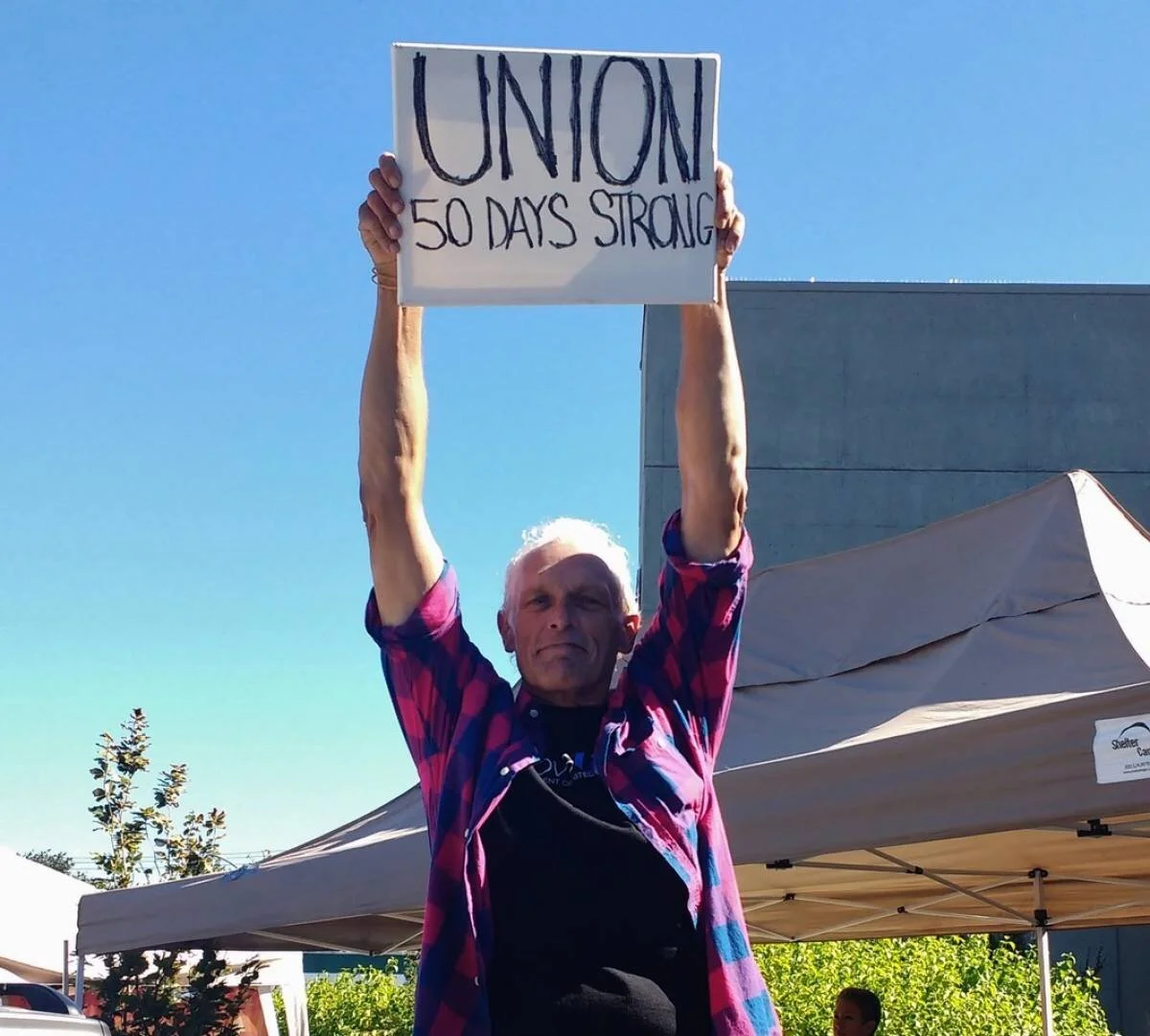After leaving acting, Allan Morgan finds his way back with I Walked the Line
The theatre artist has encouraging words for anyone questioning their art form right now
The Firehall Arts Centre presents I Walked the Line from October 15 to 25. See the venue’s COVID protocols here
AS VETERAN Vancouver actor Allan Morgan sees his theatre colleagues questioning their career choices, and struggling with unemployment during this pandemic, he understands.
In 2014, he thought it was over for him, too. The veteran actor had just come off the major role of Prospero, the magician in Shakespeare’s The Tempest, at Bard on the Beach. The phone stopped ringing and acting parts seemed to dry up. He says he kind of “fell apart”. That’s understandable for someone with such a storied 30-year career on local, national, and international stages—think world-touring The Overcoat, and gigs in everything from the Belfry’s The Drawer Boy to Electric Company Theatre’s genre-melding Studies in Motion. He is instantly recognizable to anyone who’s frequented theatres in the last few decades.
Of his paralysis after the roles dried up, he admits: “I get frozen when I’m indecisive--it seems impossible to go out and find a job.”
Now, it’s more than a little ironic that, while uncountable others are facing the same career crisis Morgan confronted, he’s busy taking the stage again.
Morgan’s new solo show I Walked the Line just happens to be perfectly scaled to these pandemic times. The play, which he stars in and wrote, recounts his experience hitting picket lines for 132 days—the dual insult being that he and his fellow marchers were striking against an organization that was itself a union. It’s based on the mailroom job he took at that union headquarters, after six months of coming to terms with the fact that acting wasn’t going to pay the rent.
“It is very odd and I find my friends questioning the art form--some of them my age and older, and young men with families to support. I have friends who are older saying, ‘By the time I get back there won’t be anything left for me;’ I know one director who’s become a beekeeper,” he says. “I did it very publicly on Facebook: ‘That’s it. I have no work. I’m gonna do this other job.’ I felt like I was the first one to leave the ship.”
But if Morgan’s new solo work proves anything, it’s that there’s hope. He finds himself in an exciting new phase of creativity—even if, as you’ll learn in his heartfelt and often funny show, his strike experience ended with his job being cut.
“It’s a very hard thing to leave the theatre,” says the upbeat actor. “It’s so wonderful and so essential. There’s always that, ‘Well, you can’t do anything else.’ But that’s a lie and that’s a myth, I came to realize. Now I’m writing, I’m performing, I was an artist-in-residence, I’m facilitating seniors writing workshops—it’s all art!”
Those creative urges found their voice again while Morgan was still sorting and delivering mail through the offices of his union headquarters—which he prefers to keep unnamed. As Morgan had so often done backstage during his career, he became a one-man committee bringing joy, and cookies, to his colleagues—decorating his mail cart with coloured lights and handing out treats and “Wednesday Fun Facts”. During the office’s Pride-week celebrations, he asked if he could write and perform a monologue on Pride; it would grow into a show eventually performed at the Firehall and Massey theatres. And it got him interested in writing and performing again.
But the tone of his workspace instantly shifted when contract talks broke down over sickpay demands by his union. “The people I had most to do with were the secretaries and assistants and clerks,” he explains. “A lot were women and longtime union gals and we struck up an unholy alliance.”
He vividly remembers the day they got locked out in the summer of 2016, with fencing going up immediately around the building. He admits he loved the solidarity on the picket lines when the group finally decided to strike. “Unions sing songs and I love that shit,” he enthuses. “We created a fort, an existence.”
In the show he recounts some of the drama; sometimes their tents and signs would get ripped down. There were dark moments, but Morgan, in his usual style, was there to cheer everyone up. “That’s when I would come up with ideas,” he says. “Sometimes we’d have a ramp-walk contest; we had a Halloween event….I organized a drive for the foodbank a week before Thanksgiving. And then I organized a big banquet; we had this big long table along the highway and it was decorated. The women brought these big weird gourds from home.
“This is where gay urban Vancouver meets the suburban union woman,” he says with a big laugh, “like, Martha Stewart on acid!”
You can find those anecdotes and many more in I Walked the Line. You’ll also see a reinspired Morgan who has found a new kind of identity and community amid his journey away from and back to theatre.
““I think my world has expanded,” he says. And as all of our worlds shrink right now, particularly in the arts, those words are kind of uplifting. A little like ramp walks on a picket line, or cookies rolling up to your cubicle.














